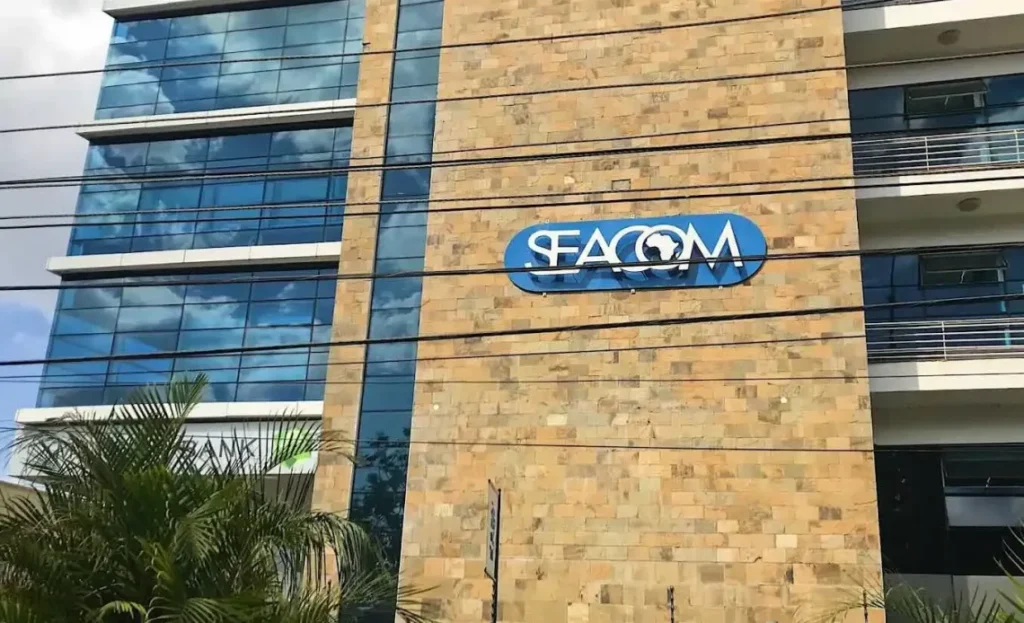- Submarine cable systems form the crucial infrastructure at the heart of the global network and internet connectivity.
- Seacom, a leading player in the submarine cable systems market, launched Africa’s first broadband submarine cable system in 2009.
- As Africa navigates digital infrastructure challenges, there’s hope on the horizon with several transformative internet projects poised to reshape the continent’s digital landscape.
The crucial role of submarine cable systems
The Internet is the backbone of modern communication, powering everything from global commerce to personal communications. At the heart of this global network lies a critical infrastructure often unseen and unthought of by the average user: submarine cable systems.
These undersea pathways are vital for international data exchange, carrying over 99 per cent of the world’s telecommunications traffic. A recent incident involving damage to Seacom’s cable in the Red Sea offers a stark reminder of the vulnerability of these underwater lifelines and the potential ramifications on connectivity, particularly in Africa.
Seacom: Pioneering Africa’s Digital Revolution
Seacom, a leading player in the submarine cable systems market, launched Africa’s first broadband submarine cable system in 2009. Stretching approximately 17,000 kilometres, Seacom’s fibre optic network connects Africa’s eastern and southern coasts with Asia and Europe, serving as a digital bridge for millions. This connectivity is crucial for economic growth, educational opportunities, and social inclusion across the continent.
Most recently, an outage was traced to damage on a segment of Seacom’s cable in the Red Sea. While the exact cause of the damage is under investigation, suspicions point towards geopolitical tensions in the region, with particular scrutiny on the activities of certain militia groups from Yemen. This incident highlights the geopolitical vulnerabilities of submarine cables, which often traverse politically sensitive areas.
The Ripple Effect: Economic and Social Impact
Such outages can translate into significant economic losses in today’s digital economy. According to a study by the World Bank, a 10 per cent increase in broadband penetration can lead to a 1.35 per cent increase in GDP growth in developing countries. Therefore, the outage represents a technical failure and a setback for economic progress in affected regions.
Globally, over 400 submarine cables are operational, spanning over 1.2 million kilometres. These cables are owned and operated by various consortia involving tech giants, telecom companies, and governments. The redundancy built into this network is often sufficient to mitigate the impact of a single cable’s failure. However, the Seacom incident underscores the critical need for ongoing investments in redundancy, especially for regions with limited connectivity options.
Read Also: Access to the internet key to transforming Africa’s agricultural sector – Policymakers
Mitigation and Response: Seacom’s Strategy
In response to the outage, Seacom has been proactive, exploring alternative routes to reroute traffic and minimize disruption. Repair efforts involve specialized ships that can locate and repair the damaged cable segments. The company has also emphasized its commitment to enhancing the resilience of its network, exploring technological advancements and strategic partnerships to safeguard against future incidents.
Understanding Africa’s connectivity
As Africa navigates digital infrastructure challenges, there’s hope on the horizon with several transformative internet projects poised to reshape the continent’s digital landscape. These initiatives, spearheaded by global and local stakeholders, aim to enhance connectivity, reduce internet costs, and unlock economic potential.
Innovative Projects Paving the Way include:
- Google’s Project Taara: This project leverages state-of-the-art free space optical communication technology to create high-speed, high-capacity links. It’s designed to overcome physical barriers, such as rivers and rough terrains, which traditionally impede cable laying.
- Microsoft’s Airband Initiative: Focused on extending broadband access to underserved communities, this initiative partners with local telecom providers to utilize unused broadcasting frequencies, bringing internet connectivity to remote areas without traditional infrastructure.
- The 2Africa and Equiano Cable Projects: These undersea cable projects are set to increase the continent’s bandwidth capacity significantly. 2Africa, one of the most ambitious projects, will circle the African continent, enhancing connectivity between Africa and the rest of the world. Conversely, Equiano aims to connect Africa with Europe, featuring branching units designed to increase network capacity and resilience.
The deployment of these projects is expected to transform internet access across Africa dramatically. By reducing the data cost and increasing internet service reliability, these initiatives will facilitate a surge in digital activities, from e-commerce and online education to telemedicine and remote work. The ripple effect on the economy could be monumental, potentially accelerating Africa’s progress towards becoming a digital economy powerhouse.
Looking Forward: Enhancing Resilience
The Seacom cable damage incident is a wake-up call for the global community. It underscores the importance of investing in infrastructure resilience, not just for the cables themselves but also for the broader internet ecosystem.
This includes developing more robust routing protocols, increasing the geographical diversity of wires, and enhancing international cooperation to protect these vital assets from geopolitical risks.
As Africa navigates the aftermath of the Seacom cable damage, the incident offers valuable lessons on the fragility of our interconnected world. It highlights the need for a concerted effort to protect and enhance the global internet infrastructure, ensuring it can withstand physical and geopolitical challenges.
By doing so, we can secure the future of global connectivity, fostering economic growth, educational opportunities, and a more inclusive digital world for generations to come.
